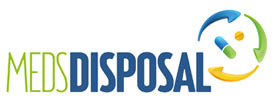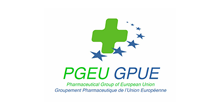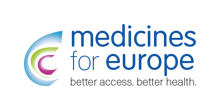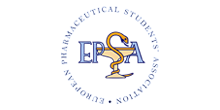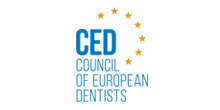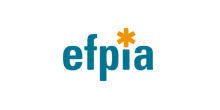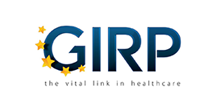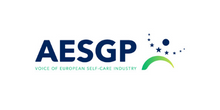How do pharmaceuticals end up in the environment ?
What is their impact on human health and how can we dispose of them properly ?
Click on your country to find out more information
By clicking on a country you can see a summary of how medicines disposal is arranged in that country and a link to national level information. The information refers to human medicines that have been meant for private use and have expired, become unusable or are not needed for other purposes (“pharmaceutical waste”), unless otherwise mentioned.
This map has been developed based on material available online at the time of research and relies on active input from all interested parties to remain up-to-date. Please help us by providing any new information or links you might be aware of (preferably government or institutional sources) by filling out the form or write us directly at medsdisposal@gmail.com
Pharmaceutical waste can be taken to any community pharmacy or communal recycling centres and/or communal collection (collected at least two times per year in each community). Both collect also sharps (needles and syringes), which should be returned separately.
Link : Department of Environmental Protection, Austrian Chamber of Pharmacists
Pharmaceutical waste (both human and veterninary) should be returned exclusively to community pharmacies. The outer box and paper leaflet should be removed and disposed of according to normal waste management schemes. This applies also to empty glass bottles and blisters. Used needles and sharps should be collected in a syringe container (for sale at community pharmacies) and should be collected in the municipal container park as biohazard waste
No information available regarding a disposal scheme for pharmaceutical waste, If you have new information regarding this country please help us improve this website by submitting through here
Pharmaceutical waste is collected free of charge by community pharmacies, health centres, medical practices and recycling centres. In some pharmacies pharmaceutical waste is collected by personnel while in others waste can be deposited in special containers. Before depositing pharmaceutical waste in containers, consumers are asked to read instructions posted in the pharmacy. Sharps are collected only by health centres and medical practices; in exceptional cases when consumers deposit sharps in unsorted municipal waste (which is in principle prohibited), they are recommended to deliver them in hard plastic containers
Link : Ministry of Environmental and Nature Protection, Source: national internet portal on recycling
Pharmaceutical waste should be returned to community pharmacies, which are required to accept pharmaceutical waste.
No information available regarding a disposal scheme for pharmaceutical waste, If you have new information regarding this country please help us improve this website by submitting through here
Pharmaceutical waste (human and veterinary) should be returned to community pharmacies (preferrably in original packages). Needles and sharps can also be returned to pharmacies (in approved sharps containers, which can be obtained at the pharmacy). All mercury, including mercury-containing preparations, thermometers and batteries should be returned separately. Empty plastic containers, glass vials or blisters should be disposed with normal glass or mixed waste
Pharmaceutical waste is collected free of charge by pharmacies and recycling centres
Link : State Agency of Medicines
Pharmaceutical waste can be taken to any community pharmacy or disposal point designated by your municipality. Both collect also sharps (needles and syringes), which should be returned in a separate container.
Link : Finnish Medicines Agency
Unused and expired medicines should be returned to community pharmacies, where they are collected through Cyclamed, the French collection scheme (focusing on human medicinal products sold in community pharmacies). The medicines outer packaging and leaflet are to be disposed in the regular household waste and recycling programs. Sharps (needles and syringes) should be returned in community pharmacies in special containers provided by community pharmacies to patients, to enter into a different collection scheme called DASTRI.
The different disposal routes for drugs and medicines in Germany are environmentally conscious and safe. As general household waste is incinerated in most parts of Germany (>80%), disposal of unused or expired medicine through general waste is in most areas the safest and recommended route. In no case does this waste go untreated to a landfill. Only in some areas or special cases, the Hazardous Waste disposal routes or returning to a pharmacy are recommended. For detailed information, please see the link attached.
Link : Drug disposal done right!
Pharmaceutical waste should be returned to community pharmacies in special containers provided by the pharmacies
Link : IFET, publicly owned company, subsidiary of the National Drug Organization (NDO), Ministry of Health
Pharmaceutical waste can be returned to community pharmacies. Some pharmacies accept needles and syringes, but the waste regulation does not cover this (only medicines).
Link : Recyclomed (communal pharmaceutical waste collecting)
Pharmaceutical waste should be returned to community pharmacies
Link : Icelandic Medicines Agency
Pharmaceutical waste (such as painkillers), medical waste (such as syringes or surgical gloves) and containers for medicines may possibly be returned to your local pharmacy, which can dispose of them properly. Many pharmacies may take back unwanted or expired medicines, but they are not legally obliged to do so. The HSE (Health Service Executive) has teamed up with pharmacies to organise take-back initiatives in the past. Some local authorities organise mobile collections, where hazardous waste can be left at a central point. Contact your local authority for further details.
Link : Citizens Information Board
Pharmaceutical waste should be returned to community pharmacies without the outer packaging and the package leaflet.
Link : Assinde
Pharmaceutical waste can be returned to the majority of community pharmacies, however not all pharmacies can accept pharmaceutical waste.
Unused or expired medicines are hazardous waste that must not be thrown in the common trash. They can be brought to pharmacies and medical practices. Households can also hand them over at a separate collection of hazardous waste organized in municipalities twice a year.
Link : Health Department
Pharmaceutical waste should be returned to community pharmacies; all community pharmacies accept unused medicines from citizens.
Link : Ministry of Health
Pharmaceutical waste can be returned to community pharmacies or collection centers from the Ministry of Environment « Special waste collect Service ». Used needles and cannulas are collected in special security boxes. Narcotics should be returned to the Health Ministry’s competent service.
Link : SuperDrecksKëscht, Syndicat des Pharmaciens Luxembourgeois, Gouvernement du Grand-Duché de Luxembourg
Civic Amenity sites are facilities where the public can bring and discard various types of bulky household waste, domestic hazardous waste as well as recyclable materials. Civic Amenity sites also cater for the disposal of expired medicines and used syringes
Link : WasteServ Malta Ltd., company responsible for waste management
Pharmaceutical waste should be returned to community pharmacies. Pharmacies in 95% of the municipalities have local agreements on the collection of expired and non-used medicines, as well as sharps and syringes.
Link : Dutch government, KNMP, Dutch pharmacists association
Pharmaceutical waste should be returned to community pharmacies, which are obliged to collect unused medicines from individual patients/consumers. Pharmacies do not collect other kind of waste from patients.
Link : helsenorge.no
Pharmaceutical waste can be returned to most pharmacies/pharmacy points or to special hazardous waste collection points established by the municipality (located for example in the hospitals). Pharmacies and pharmacy points participate in the collection of unwanted/expired medicinal products voluntarily and the information on collection points can be found on the websites of municipal offices. The offices ensure the export and utilization of the pharmaceutical waste. Sharp medical waste (needles, syringes) are collected in separate collection points for municipal waste (so-called PSZOK).
Link : Ministry of Health, Ministry of Climate and Environment
Portugal has a national collection system for unused pharmaceuticals (human and veterinary medicines) called SIGREM – Sistema Integrado de Recolha de Embalagens e Medicamentos fora de uso. This system is managed by Valormed. The system covers household pharmaceutical waste, and since 2007 has been extended to veterinary pharmaceuticals, pharmaceutical packaging produced during industrial or distributor activity, and packaging from hospital pharmacies and other health providers, such as community pharmacists.
Link : Valormed, responsible for national disposal of pharmaceutical waste
According to Ministerial Order no 994/2018: "Pharmaceutical waste should be collected by community pharmacies". These will need to ensure that the information about free collection of expired medicines is visible for the patients.
According to legislation, pharmaceutical waste should be collected by community pharmacies
Pharmaceutical waste is collected separately and in original packaging by municipal waste collection centres, by pharmacies, by specialised stores or during specific campaigns by authorised collectors of medical waste, all at no cost to the individual consumer. Paper containers and instruction leaflets are collected as waste paper. Sharps (used needles) used by individuals are classified and collected as waste metal in waste collection centres; it is recommended that they are delivered to the waste collection centre in closed plastic containers. Pharmacies are not allowed to collect sharps, medical technical accessories, chemicals, radiopharmaceutical products or blood and plasma products.
Link : Regulation on pharmaceutical waste , Slovene Chamber of Pharmacy
Pharmaceutical waste should be returned to community pharmacies. Empty packaging and leftover medicines that are no longer needed or have expired can be left in SIGRE containers at the pharmacy. Needles, syringes, gause, thermometers, radiographs, chemical products and batteries are out of scope of the SIGRE collection scheme. Veterinary medicines are also excluded.
Link : SIGRE, national scheme for household medicines disposal
All remaining drugs must be submitted to a pharmacy. From there, they are sent to approved facilities for the incineration of drugs. Medicines should never be thrown away with household waste or flushed down the toilet. Empty pharmaceutical packaging such as blisters, cartons and cans must be sorted and disposed of as other packaging in accordance with the rules in force in your municipality. If the packaging contains visible drug residues or if it is difficult to determine, it should be returned to pharmacies along with the leftover medicines.
Medicines are considered hazardous waste in Switzerland and must be disposed of accordingly. Expired or no longer needed medicines from households can be handed usually in free of charge at pharmacies, drugstores or collection points (larger quantities, e.g. from health care facilities, must be disposed of at collection points). Disposal is financed according to the polluter pays principle.
Link : Nachhaltig leben "Élimination des anciens médicaments: la bonne façon de procéder", Brochure "Disposal of medical waste" of the Federal Office for the Environment
Unused medicines should be returned to community pharmacies for disposal. Public who return unwanted medicines are encouraged not to take them out of their original packaging to try and avoid contact of incompatible products. Sharps (e.g. needles / syringes), waste produced by a healthcare professional treating a patient in their household and "hazardous waste" should be disposed of in other ways.
Link : NHS, National Health Service, NHS, National Health Service "How should I dispose of used needles or sharps?", Pharmacy take back scheme

Time's up
#medsdisposal is a campaign to raise awareness on how to dispose of unused or expired medicines appropriately in Europe, bringing information on current disposal schemes in European countries to one place.
